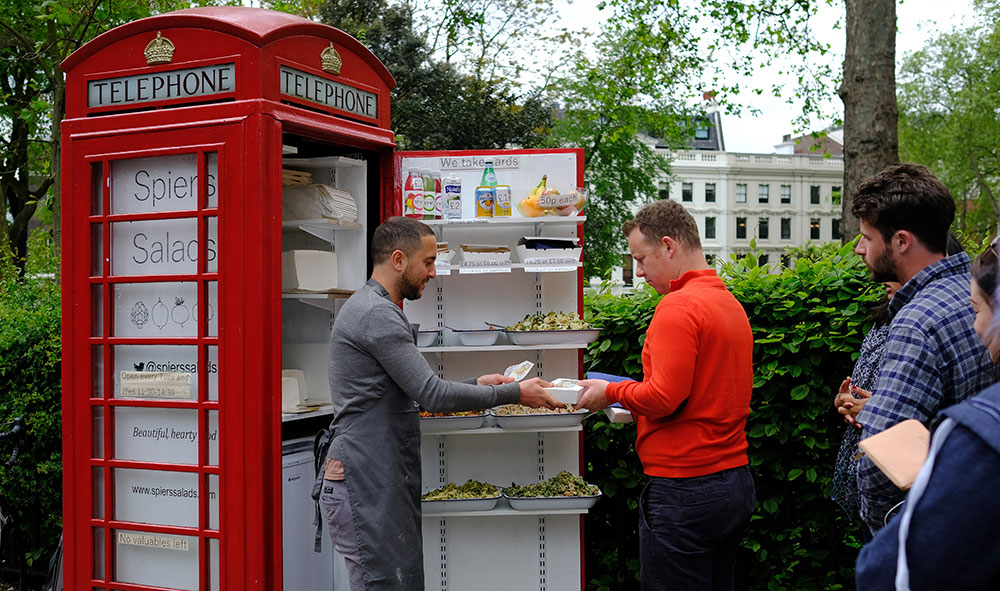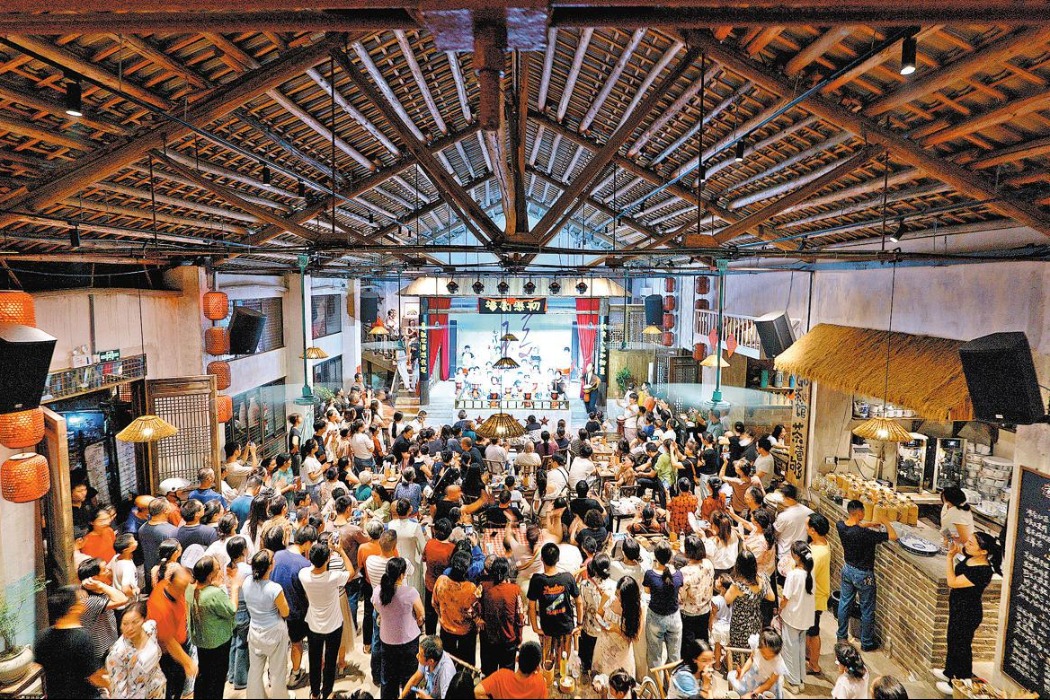Iconic red phone boxes ring the changes


LONDON - Facing extinction due to ubiquitous mobile phones, Britain's classic red telephone boxes are being saved from death row by ingenious conversions into all sorts of new uses.
"It smells nice," a passer-by said while sniffing the waft of hot stew steaming out of one phone box in the heart of London.
Every day, dozens of office workers come down to Bloomsbury Square to get their lunch at a phone box that has been converted to hold a tiny refrigerator and features shelves for dishes.
The generous salads - the house specialty - go down particularly well with customers who like to sit in the square's gardens to enjoy their lunch.
It is one of thousands of phone boxes that are enjoying a new lease of life.
Often abandoned, vandalized or reeking of urine, they've been transformed into libraries, art galleries and information hubs; others into cafes, hat shops or even defibrillator points for heart attacks.
Since their numbers peaked at 92,000 across the United Kingdom in 2002, phone boxes have been in rapid decline. There are now 42,000 left, of which 7,000 are the classic red booths loved by tourists.
British telecoms giant BT plans to remove 20,000 more by 2022. It said most of its phone booths lose money, while maintaining them costs $6.7 million a year.
Overall, 33,000 calls are made daily from phone boxes, a drop of 90 percent in 10 years.
The best-known model is the K6, in pillar box red with a crown embossed on its curved roof. It was the first to be installed as a standard around the country.
It was designed by the British architect Giles Gilbert Scott for the silver jubilee of King George V in 1935, marking 25 years of his reign.
"We are looking for new alternatives to pay phones," said Mark Johnson, BT's head of pay phone operations.
Several hundred phone boxes now house cash machines, while others are being turned into free and ultrafast Wi-Fi booths paid for by advertising.
BT is also considering whether they could be turned into power points for electric vehicles.
Some are restored and sold via an authorized reseller, with prices starting at $3,700, excluding value added tax.
Others are sold for a pound to local communities or associations wanting to give them a new lease of life, part of BT's Adopt a Kiosk scheme which has already kept 5,000 of them standing.
"The whole idea of this is keep the heritage of the UK in place," Johnson said.
The Red Kiosk Company, which donates a portion of its profits to charity, is one of the beneficiaries.
It has already bought 124 redundant phone boxes, which it rents out for $480 a month.
"You're saving a historic structure, you're creating employment and you're regenerating an area," said founder Edward Ottewell.
Agence France-presse
Today's Top News
- Xi says major countries should take lead in abiding by intl law, UN Charter
- Xi meets Taoiseach of Ireland
- New Year holiday drives travel peak
- ROK leader begins state visit to China
- AI must serve humanity, not endanger it
- Initiative sets clear course for Yangtze






























